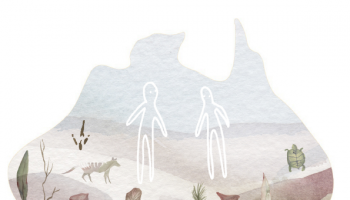Recently, an Auckland lawyer named Marc Cropper was convicted of three charges of possessing methamphetamine after being tried in Auckland District Court. The ex-senior associate at Simpson Grierson, one of New Zealand’s most prestigious major law firms, admitted to having 2.5 grams of ice over a significant period of stress in his life last year. He was a successful specialist in IT law, but his conviction means that he will never be able to work in the legal field again, and will undoubtedly have significant trouble finding a job elsewhere.
The consequences of drug use and its significance for those in certain professions are very similar on both sides of the Tasman. Enormous, life long commitments are made to being in the legal profession. Just like a doctor, a teacher or a politician; a lawyer will almost always be unable to work in the legal profession with any sort of criminal conviction. Anything that could compromise your position as a ‘fit and proper’ person will need to be scrutinised. Almost all convictions will stop lawyers, doctors and teachers from beginning or continuing to practice.
While I don’t condone Cropper’s actions, I couldn’t help but sympathise. What would it feel like to have spent your entire life working extremely hard and making enormous sacrifices, only to be convicted of drug use and lose everything you have worked so hard for since you were a teenager? This man has gone from earning an extremely high income to now receiving sickness benefit payments. He will never be a lawyer again and will probably never find a well-paying job ever again. Like anyone else who utilises social welfare, he’ll undoubtedly get labelled a ‘lazy dole bludger’. But instead of criticising anyone who dares to receive social welfare, perhaps we should look at reforming the system that put them there in the first place.
Stories like this are why I support the idea of decriminalising personal drug use. Decriminalisation refers to a reduction of legal penalties, and it can be done by either changing them to civil penalties, such as fines, or by diverting drug use offenders away from a criminal conviction and into education or treatment options. It largely applies to drug use and possession offences, such as Cropper’s case, but not to the sale or supply of drugs. The idea behind decriminalisation is to provide users with a more humane and sensible response to their drug use that does not damage their ability to rehabilitate. When a court decides to put a drug-user behind bars, my question is: what incentive does the defendant now have to give up their addiction? Drugs are a coping mechanism for many people in times of distress. If someone has lost everything and is now facing jail time, the dismal reality of the situation will simply fuel his or her addiction.
My views on it have always been simple: treat drug addiction more as a mental health issue and less as a crime by changing the focus of sentencing from punitive to rehabilitative. Casual drug users are only hurting themselves, whereas creators and distributors are harming the wider society. Personally I believe only one of those groups deserve criminal penalties. I believe in ‘upstream thinking’: we should focus on eliminating factors that lead young people into illicit drug use, such as poverty, poor education and poor mental health services, rather than how we should punish them. Convicting a young person for drug use will send them down a completely different path for the rest of their life.
There’s a big difference between legalisation and decriminalisation. While drugs remain illegal, decriminalisation simply focuses on the penalties that drug users receive. It means that people, like Cropper, won’t necessarily have their entire life ruined by a sheet of paper saying ‘conviction’ after they turn to ice to cope with their precarious mental health. It would mean that people in his position could receive help, rehabilitate, and one day continue to work and be a functioning member of society. With my own eyes, I’ve seen a family member go from ice addiction to complete rehabilitation where she now thrives under a successful career. She was never given a conviction and things would have turned out completely differently if that had been the case. It’s important to remember that full rehabilitation is a very real and very possible prospect for a lot of drug addicts, yet a conviction will permanently inhibit any prospects for the future.
As radical as it seems, a world where drugs are decriminalised is not entirely fictional. In 2001, the Portuguese government completely decriminalised drug use. If someone in Portugal is found to be in the possession of recreational supply for any illegal drug, they are given treatment, a minor fine, or most commonly, no penalty at all. Fifteen years since decriminalisation, drug use has been in steady decline, especially for those among the 15 to 24 year old population who are most at risk of initiating drug use. Drug-induced deaths have also decreased significantly.
Around the same time, Portugal shifted drug control from the Justice Department to the Ministry of Health and instituted a strong public health model for treating hard drug addiction. They also expanded the welfare system in the form of a guaranteed minimum income. Changes in the material and health resources for at-risk populations over the past decade are a key part of Portugal’s evolution and success. Drug related offences also take up a huge share of the work of police, the judiciary, and prisons. A lesson to be learned from Portugal is that decriminalising drugs doesn’t necessarily lead to disaster as many may think. It frees up resources for more effective responses to drug problems and it stops people with potential to be a great contributor to society from having that potential stripped away from them.
In recent years, Australia has taken a few progressive steps in regards to drug use. In the Northern Territory, adults found in possession of up to 50 grams of marijuana are likely to be fined $200 and given 28 days to pay the fine before being faced with a criminal charge. Since 1987, South Australia has also decriminalised minor cannabis offences. There hasn’t been a rise in cannabis use rates despite certain states and territories introducing civil penalties for users. Research on diverting drug use offenders into treatment rather than a conviction has shown that these individuals are just as likely to succeed in treatment as those who attend voluntarily.
Issues such as the ice epidemic are making the discussion on drug reform increasingly urgent. The number of Australians using ice at least once a month has tripled to 270,000 in the last five years. As methamphetamine use becomes increasingly stigmatised, fewer people are admitting to having used the drug, and these statistics are likely to underestimate the level of use. When the use of an extremely dangerous and potentially lethal drug is increasing at such a rate and destroying communities in the process, sweeping the issue under the rug simply isn’t good enough.
With all this positive evidence on the table, it begs the question: why is Australia so reluctant to take progressive drug policy reform further? Public opinion may play a huge part as politicians largely regard decriminalisation as an unpopular policy choice. While national surveys prove that decriminalisation of cannabis is popular amongst the Australian public, decriminalisation of other drugs simply is not. Lack of education and clarity on the issues may contribute to this.
‘Decriminalisation’ is a word that gets misinterpreted often. It is often inaccurately confused with legalisation, or harm reduction services, such as prescribed heroin programs. Stimulating informed public debate is an important step forward. In order for this debate to make meaningful progress, we need to clarify terms and impartially present all evidence that currently exists. This includes current models of decriminalisation like Portugal, the Netherlands, Spain, Switzerland, and to a far lesser extent but much closer to home – Northern Territory and South Australia.
The decriminalisation policy reform in Northern Territory was a step in the right direction, and for that, I can acknowledge Australia is slowly moving forward. But in a nation where ice is killing off more people each year and where recent drug reform policies have made little to no difference – something needs to be changed. Cropper’s case reminds us that drug decriminalisation could save our most valued members of society – our doctors, our teachers, our lawyers – from having one mistake send them down a completely unredeemable path. Moreover, the discussion on decriminalisation and reforming drug sentencing is almost non-existent in Parliament at the moment. However, there will be a day where Australia’s problem with drugs reaches a tipping point. When we get there, perhaps our politicians will realise that just because they can’t see the gruesome realities of addiction and poverty from their bedroom window in Toorak, it doesn’t mean that it is not happening right in front of us.


